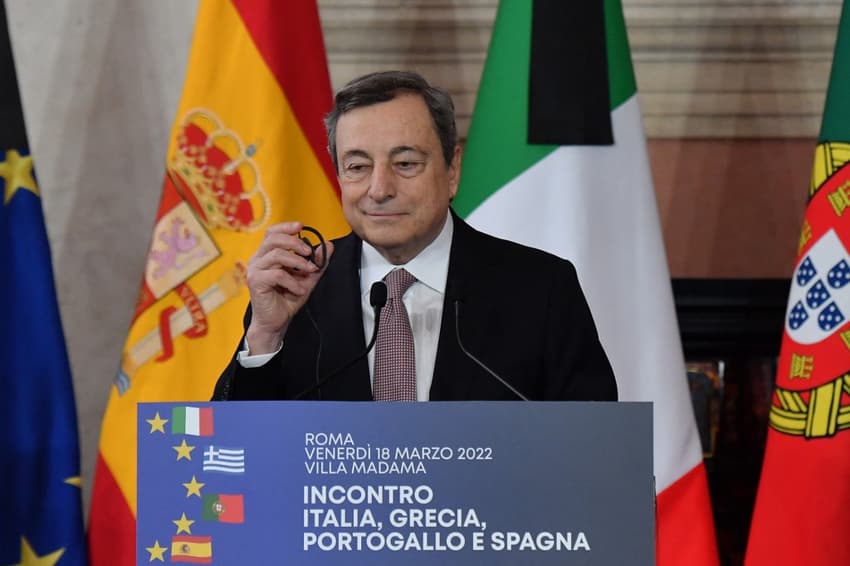Italy slams 'odious' threats by Russia over sanctions

Italy reacted furiously Saturday to "odious and unacceptable" insults and threats by a senior Russian foreign ministry official attacking sanctions applied against Moscow for its invasion of Ukraine.
Alexey Paramonov, head of the Russian foreign ministry's European department, accused Italy of falling victim to "anti-Russian hysteria", in comments to the state-run RIA Novosti agency.
He said Italy had forgotten centuries-long relations and bilateral agreements "in a second".
He said he hoped French finance minister Bruno Le Maire's vow earlier this month to "wage a total economic and financial war on Russia" would not "find followers in Italy and cause a series of appropriate irreversible consequences".
Le Maire subsequently walked back his comments, conceding they had been "inappropriate".
Paramonov said Russia had provided "significant assistance" to Italy during the first wave of the coronavirus pandemic in 2020, at the request of Italy's defence minister Lorenzo Guerini.
Guerini was now one of the main "hawks and instigators of the anti-Russian campaign" within the government in Rome, he said.
Italy's foreign ministry said it "firmly rejects the threatening statements" from Moscow. Rome and its partners would "continue to exert every pressure" to stop the Russian invasion of the Ukraine, it added.
Italian Prime Minister Mario Draghi condemned the "comparison between the invasion of Ukraine and the pandemic crisis in Italy" as "particularly odious and unacceptable".
Guerini said Italy would "not give weight to propaganda", and continued to stand by Ukraine.
Ukrainian President Volodymyr Zelensky is set to address the Italian parliament on Tuesday.
Comments
See Also
Alexey Paramonov, head of the Russian foreign ministry's European department, accused Italy of falling victim to "anti-Russian hysteria", in comments to the state-run RIA Novosti agency.
He said Italy had forgotten centuries-long relations and bilateral agreements "in a second".
He said he hoped French finance minister Bruno Le Maire's vow earlier this month to "wage a total economic and financial war on Russia" would not "find followers in Italy and cause a series of appropriate irreversible consequences".
Le Maire subsequently walked back his comments, conceding they had been "inappropriate".
Paramonov said Russia had provided "significant assistance" to Italy during the first wave of the coronavirus pandemic in 2020, at the request of Italy's defence minister Lorenzo Guerini.
Guerini was now one of the main "hawks and instigators of the anti-Russian campaign" within the government in Rome, he said.
Italy's foreign ministry said it "firmly rejects the threatening statements" from Moscow. Rome and its partners would "continue to exert every pressure" to stop the Russian invasion of the Ukraine, it added.
Italian Prime Minister Mario Draghi condemned the "comparison between the invasion of Ukraine and the pandemic crisis in Italy" as "particularly odious and unacceptable".
Guerini said Italy would "not give weight to propaganda", and continued to stand by Ukraine.
Ukrainian President Volodymyr Zelensky is set to address the Italian parliament on Tuesday.
Join the conversation in our comments section below. Share your own views and experience and if you have a question or suggestion for our journalists then email us at [email protected].
Please keep comments civil, constructive and on topic – and make sure to read our terms of use before getting involved.
Please log in here to leave a comment.